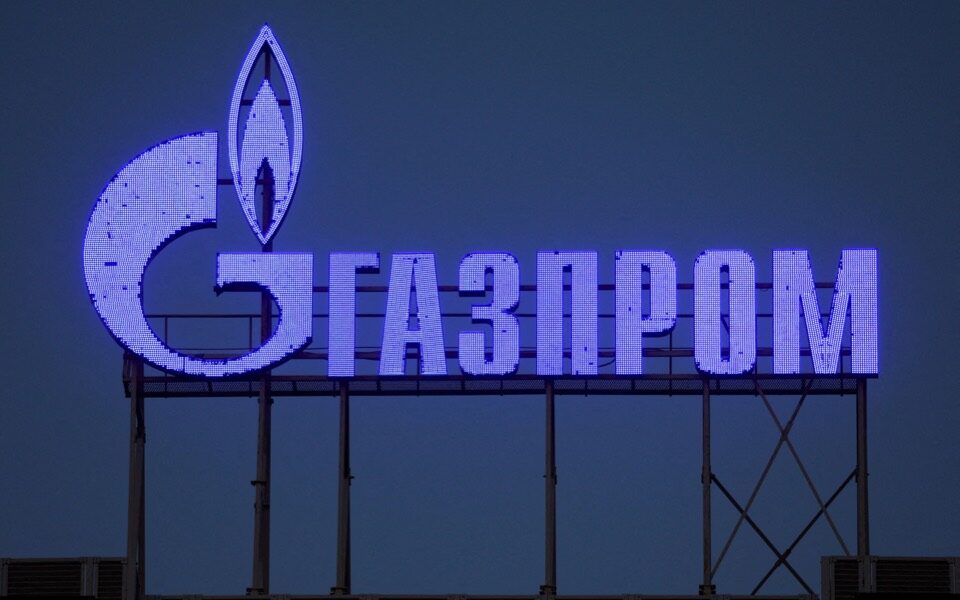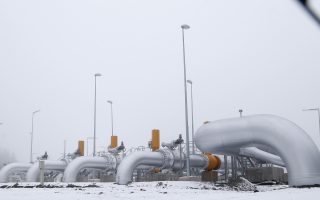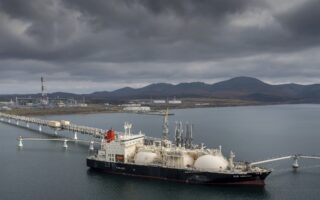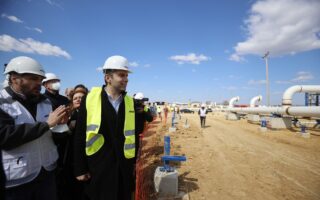Russia fires the first gas shot

Russia’s decision to cut off natural gas supplies to Poland and Bulgaria marked a turning point in this war. Until now, the gas relationship between Europe and Russia was relatively unaffected by the conflict. Europe actually imported more gas in March than in January or February. Even so, this trade has looked untenable for weeks. Something has finally broken. What comes next is unknown.
The pretext for the cutoff was the Russian demand that Europe pay for gas in rubles rather than dollars or euros. Europe’s response was that payments should be settled according to the contracts terms. Russia suggested that customers could open an account with Gazprombank, which would convert the money into rubles to pay the bills. The European Commission opined that this structure might violate sanctions against the Russian Central Bank. Some companies seem to have opened them. Others, like Poland and Bulgaria, did not. This appears to have triggered the cutoff.
Poland has long stated that it wants to stop importing Russian gas after its contract expires in 2022. Bulgaria also has a contract that expires in 2022 that it does not plan to renew. So both countries were going to stop gas imports from Russia after 2022. The cutoff only accelerates a shift that was bound to happen. Maybe this explains why these countries were cut off. We do not know. We are still learning how different companies have chosen to respond to Russia’s demand.
The interruption raises several issues. It is a reminder that each country is charting its own path on Russian energy. With pressure for additional sanctions, this discord will hamper a coordinated response. The guidance from the European Commission has also been unclear. Whether Europe should sanction Russian energy is a decision for Europe’s leaders. It seems to have devolved to a technical question about a complex financial scheme. Either Europe sanctions Russian energy or it doesn’t; settling this decision on a technicality seems like a mistake.
In a broader sense, this cutoff underscores the growing precariousness of the gas relationship between Russia and Europe. Russia is clearly ready to escalate – part of its effort to regain the advantage and push back against economic sanctions from the West. Europe, meanwhile, wants to cease oil and gas imports from Russia by 2027 – too quickly by energy standards but too late by political standards. Europe faces an impossible task.
The easiest way to resolve this tension would be to sanction Russian oil, which is easier to replace than gas. This would hurt Russia and channel the public pressure for action toward a more feasible target. But sooner or later, Europe will need a plan on gas. Right now, it is every country for itself, each trying to secure a small slice of whatever supply is available. For any one country, diversification is perhaps easy. But once everyone does it, the math gets harder. As one country improves its security, others confront fewer options. Energy security is rapidly becoming a zero-sum game.
Europe’s plan to eliminate Russian gas is more aspiration than reality right now. The biggest obstacle through 2030 is Europe’s hesitation to increase gas production for fear that such action would undermine Europe’s climate agenda. This is a mistake. Europe can find ways to ensure this increase is consistent with its climate goals. The reality is that without more gas supply through 2030, cutting off Russia will be nearly impossible and prohibitively expensive. This cutoff is just the beginning. The next phase is far more uncertain and far more dangerous.
Nikos Tsafos (@ntsafos) is the James R. Schlesinger Chair in Energy and Geopolitics at the Center for Strategic and International Studies (CSIS).





